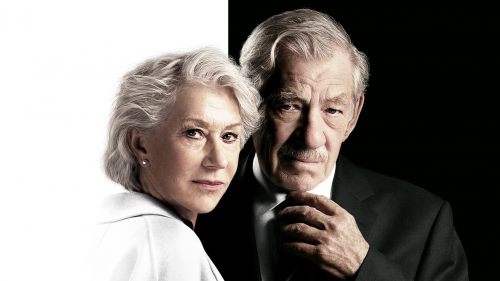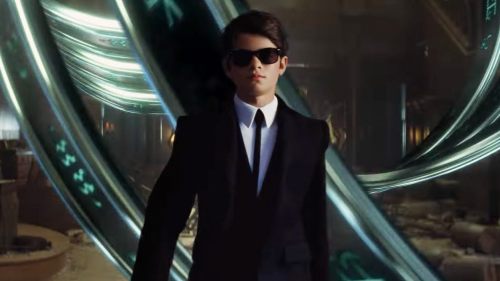ALL IS TRUE Review: Suppositional Shakespearean Supplement
If you know one thing about Kenneth Branagh, it’s that the man loves himself some Shakespeare. He has directed and starred in numerous adaptations and productions for the stage and screen, and even when he isn’t performing or directing Shakespeare’s work, his love for melodramatic flourish shines through no matter what he's working on. It’s almost surprising, then, that Branagh hasn’t ever attempted to play Shakespeare himself before now, as something in the vein of All Is True seems like such an inevitability that Branagh would have committed to it before aging out of the role. Yet here we finally are with a film set at the end of Shakespeare's life, and with Branagh directing and starring. You get precisely what you might expect from one who so faithfully adores his subject.
Ben Elton’s screenplay is less biopic than a preponderance of what William Shakespeare’s final years might have been like, based on the little we do know of that period. This story imagines William as an absentee father and husband who buried himself in his work to the abandonment of his wife Anne Hathaway (Judi Dench) and his daughters Judith (Kathryn Wilder) and Susanna (Lydia Wilson) after the death of his eleven-year-old son Hamnet (Sam Ellis). Years after that death, William only returns home after the tragic fire that consumed the Globe Theatre, and there finds that Anne will no longer share her bed with him, Susanna has become embroiled in scandal in the church, and Judith despises him for his unwillingness to move on from Hamnet and recognize her worth as more than a potential vessel for male heirs.
As one might expect from a Kenneth Branagh production, the performances are generally expressive and melodramatic, though the hammiest of performances seem to have been relegated to supporting characters and bit roles, such as an extended dialogue with Ian McKellen as the Earl of Southampton that injects a delicious bit of camp smack dab into the middle of the film. Branagh himself is remarkably restrained for much of his performance, which makes the scenes where he gesticulates and blusters all the more engaging for the contrast. What’s particularly interesting is that Branagh’s take on Shakespeare is surprisingly human for a film that borders on hero worship. Branagh doesn’t pull punches on some of Shakespeare’s misogynistic attitudes toward the capabilities of women in the arts, alludes to the possibility that Shakespeare might not have been a zero on the Kinsey scale by suggesting that not all the subjects of his romantic poems were women, and paints the man as so obsessive over legacy that it actively harms his family. This all is either an interpretation of the man through his work or just flat out supposition for the sake of drama, but it’s a relief to see that Branagh’s Shakespeare is allowed to grow and falter like a person rather than stand untouchable as a literary genius and therefore perfect inhuman specimen.
Where All Is True seems to falter is in some of the narrative choices in making a story about William Shakespeare’s life. Molding anyone’s life into a three-act structure is a torturous process, and while Elton takes extensive liberties with his subject and constrains the plot to a limited window of time, that plot still tends to meander and kill time between revelatory turning points in a way that feels distracted from the central theme of familial redemption. This is especially noticeable whenever the film cuts away to check on what Susanna is up to, since as a married woman away from home she isn’t central to William’s domestic drama and only seems to have been included based on the virtue of having actually existed. It’s also worth noting that much of the staging and cinematography are remarkably flat, as if constrained by the limitations of a stage production but not consistently enough for it to seem like a stylistic choice.
That shouldn’t prevent Kenneth Branagh from being proud of himself for this creation. As the premier Shakespearean auteur of our time, Branagh’s love letter to his idol is worthy of that love even as it suffers from some of the typical excesses of its genre. It’s part thought experiment and part homage, wrapped in the illusory trappings of a biopic and presented with a winking allusion to the alternate title of Shakespeare’s final play. Whether all is true doesn’t really matter, so long as the emotion is.



